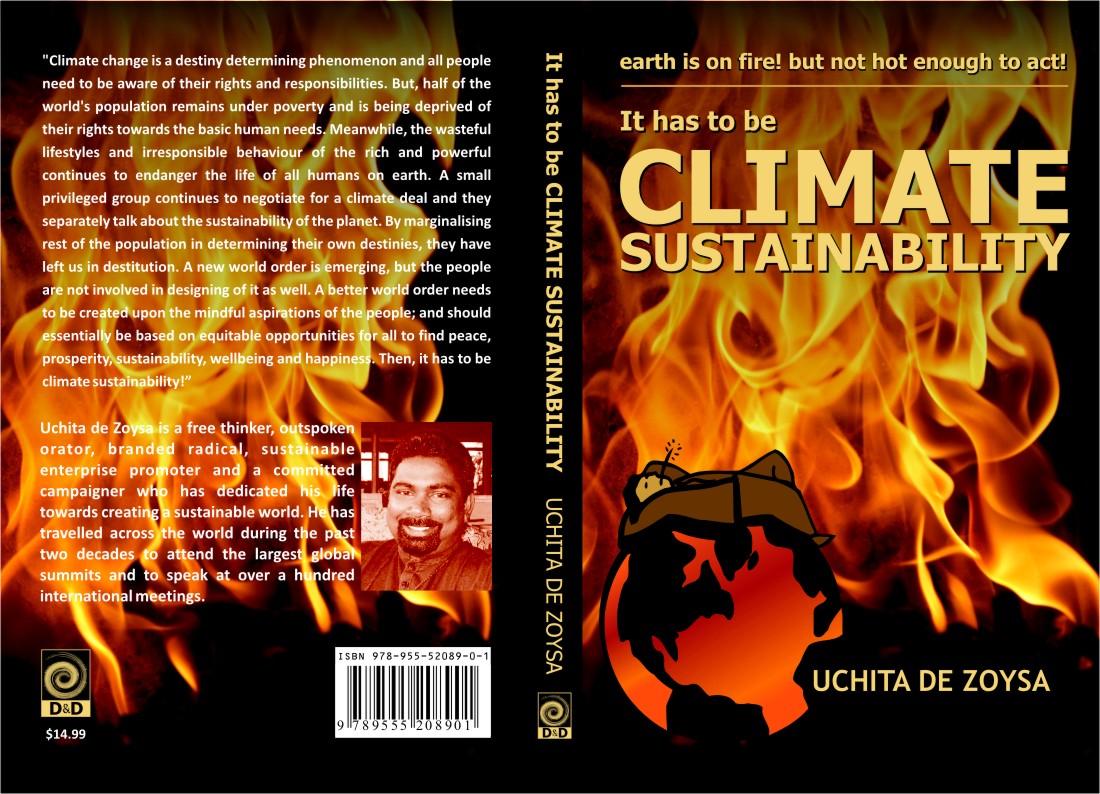CHAPTER 06: They all Want Lipstick!
Chapter six challenges the consumerist trends of the west and warns of the effects it has had in the South as well. The search of such fortunes in cities also has increased the consumption of resources on earth. The generic claim is that twenty percent of the world consumes nearly eighty percent of global products and services. The growing consumer classes, in the countries with rapid economic development, add more pressure on our resources. A whole new value system on consumption is needed. (from pg 108) ..... "An hour with Noble laureate Dr. Mohamad Yunus at the Grameen Bank during my visit to Bangladesh in 2004 helped me narrate a story about the growing consumerist trends in the developing countries. While discussing the status of sustainable consumption in a country stricken by poverty and constant natural disasters, Dr. Yunus highlighted the impact of industrial development on the lifestyles of young rural women. ......"
(from pg 111) ..... "The prevailing unsustainable consumption and production system is the largest contributory factor to both climate change and poverty on earth and thus requires greater emphasis and focus at the levels of international regulation. If anthropogenic climate change is to be controlled, then developing a regulatory framework for sustainable consumption and production must be a priority as well. In very simple terms, unsustainable consumption and production needs to be regulated on earth parallel to emission cuts as a solution to both problems of climate change and poverty." ......
(from pg 112) ..... "The prevailing unsustainable consumption and production system is the largest contributory factor to both climate change and poverty on earth and thus requires greater emphasis and focus at the levels of international regulation. If anthropogenic climate change is to be controlled, then developing a regulatory framework for sustainable consumption and production must be a priority as well. In very simple terms, unsustainable consumption and production needs to be regulated on earth parallel to emission cuts as a solution to both problems of climate change and poverty. ..."
(from pg 113) ..... "The western consumerist and wasteful culture has already infected the south. The mega malls in south Asia and in countries like Malaysia, Singapore and Thailand are living examples of how the market induces consumers into feverishly purchase ‘wants’ more than their ‘needs’. These malls are parasites within the society that attracts us in a subconscious process of buying. The hyper-malls and supermarkets have an amazing power over the human mind, and can induce us into spending on things we do not need and tricks us to consume in a way the market system wants. A Malaysian consumer activist explained to me the reasons why supermarkets place their carry -carts at the entrance. ..... "
